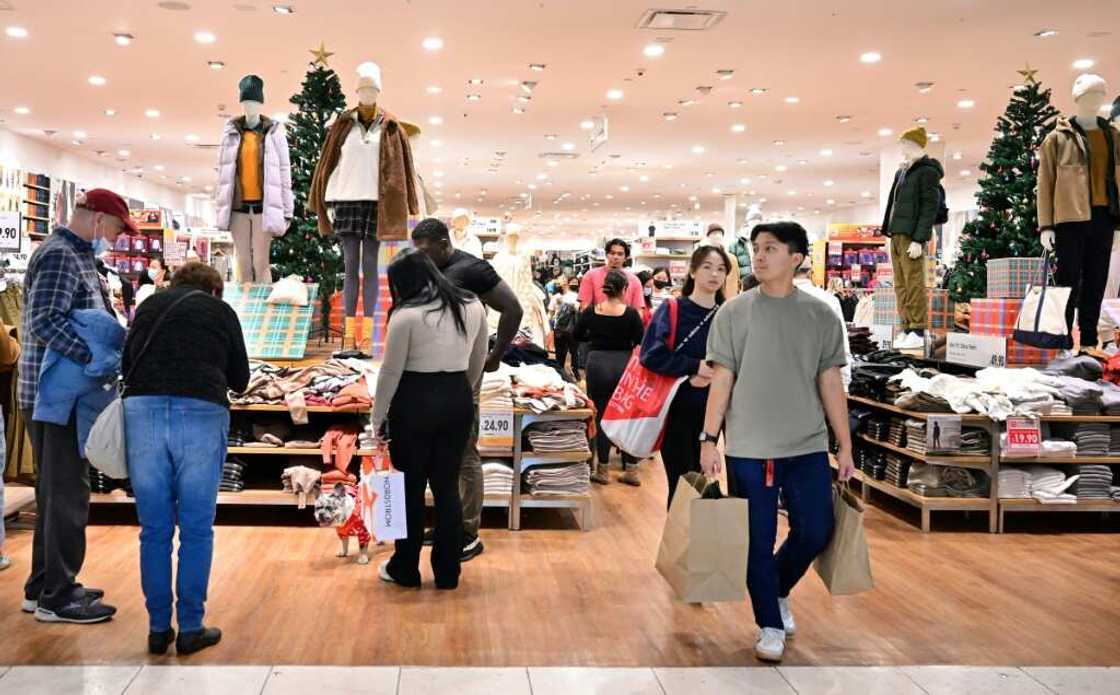US retail sales shrinks for second straight month on consumer caution

Source: AFP
Legit.ng is celebrating business personalities of 2022. See top entrepreneurs of Fintech, Startup, Transportation, Banking and other sectors!
Retail sales in the United States slumped for a second straight month in December, according to data released Wednesday, as consumers grow cautious on economic uncertainty and measures to ease demand bite.
The US central bank has been raising interest rates steeply to cool the world's biggest economy as American households found themselves squeezed by decades-high inflation -- and the effects are rippling across sectors.
Retail sales contracted more than expected by 1.1 percent in December from the month prior, to $677.1 billion, said the latest Commerce Department figures.
Falling sales at department stores and gasoline stations proved to be a drag on data, while the auto and furniture segments also saw declines.
This comes as gas prices plunged last month, and analysts said bad weather across the country could have temporarily held back vehicle sales as well.
But retail sales remains 6.0 percent up from December 2021.
PAY ATTENTION: Сheck out news that is picked exactly for YOU ➡️ find the “Recommended for you” block on the home page and enjoy!
Excluding gasoline stations, sales dipped 0.8 percent from November, the Commerce Department said.
Spending at restaurants and bars took a hit as well, dropping 0.9 percent between November and December, despite consumer resilience previously.
Retail sales excluding the volatile gas, autos and food components has "slowed materially since last spring," said Ian Shepherdson of Pantheon Macroeconomics in a recent note.
"Consumers have shifted some of their spending towards services as Covid fear has subsided," he said.
But "more recently we think people have become more cautious in the face of increased economic uncertainty and sharply higher borrowing costs," he added.
Source: AFP


